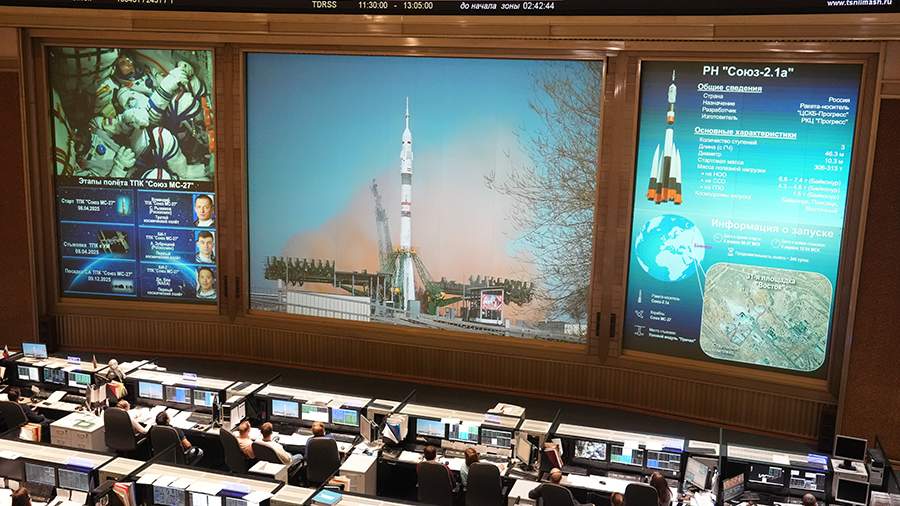Russia has proposed to the United States to expand space cooperation. What you need to know
- Новости
- Science and technology
- Russia has proposed to the United States to expand space cooperation. What you need to know

It is possible to strengthen cooperation between Moscow and Washington in the space sector. In particular, Kirill Dmitriev, head of the Russian Direct Investment Fund (RDIF), suggested that the new US administration work more together in this area. However, Washington has repeatedly stated the potential danger posed by Russia and China to the American satellite industry. Which Russian-American projects are most relevant can be found in the Izvestia article.
How the United States and Russia work in space
• In 2024, according to the consulting firm Novaspace, the entire country allocated $135 billion for space exploration. The largest contribution to this growth was made by the sector of defense space programs, in which the global volume of investments reached $73 billion. The United States remains the leader in spending, accounting for 59% of all global investments in the space sector — $79.6 billion. This is followed by China, Japan, Russia and France, who took second to fifth places respectively.
• The sanctions barriers have not become insurmountable for the space dialogue between Russia and the United States. Roscosmos and NASA are going to maintain cross-flights under the International Space Station (ISS) program. As part of such flights, American astronauts fly on Soyuz rockets, and Russian cosmonauts fly on Crew Dragon. As a result, crews receive training to operate different ships, and countries back each other up in case of problems.
The crew of the 73rd long-term expedition, which arrived there on April 9, is currently working on the ISS. The main team consisted of Roscosmos cosmonauts Sergey Ryzhikov, Alexey Zubritsky and Nasa astronaut Jonathan Kim, Roscosmos cosmonauts Sergey Kud-Sverchkov, Sergey Mikaev and NASA astronaut Christopher Williams. Cosmonauts Alexey Ovchinin, Ivan Wagner and Kirill Peskov, NASA astronauts Donald Pettit, Anne McClain and Nicole Ayers, as well as JAXA astronaut Takuya Onishi also continue to work at the station. Three of them will leave the ISS on April 20.
• However, deep scientific cooperation outside the ISS program has been suspended. For example, Moscow and Washington have stopped contacts on joint projects, in particular on the exchange of deep space data.
• Both NASA and Roscosmos emphasize that ensuring the safety of all ISS crew members is a top priority. Despite disagreements on Earth, the partners in space continue to share information and support the work of the station in order to save lives and successfully complete missions.
• In the future, Russia is going to develop its own space station. It will differ from the ISS primarily in its orbital inclination. Thanks to this solution, it will be possible to observe almost the entire territory of the Russian Federation, while only about 10% of Russia's area is accessible to astronauts from the ISS. The deployment of the new station is planned for 2027, and the project is planned to be fully implemented by 2032.
How countries compete in space
• Although Moscow is working with Washington on some space issues, their relationship is dominated by rivalry. First of all, it concerns the lunar programs. The United States is actively promoting the Artemis project, which aims to return astronauts to the moon, and then to build the Gateway lunar station. Russia, in turn, together with China is developing an alternative project — the International Scientific Lunar Station (ISS). Moscow and Beijing are going to establish their base on the moon in the 2030s. In fact, two independent "camps" of lunar exploration are being formed.
• Russia remains one of the leading space players thanks to the Soyuz and Proton rockets. However, the United States, actively supporting private companies like Elon Musk's SpaceX and Jeff Bezos' Blue Origin, is making headway in the commercialization of space transportation and satellite launches. According to Space News, in 2024, Americans made more launches than all other countries in the world.
• Both the United States and Russia are actively developing programs to protect their satellites and counter possible threats from outer space. It is also worth noting cyberspace as a new "invisible front" of space confrontation. In particular, the United States reported attempts to attack its satellite systems and interfere with spacecraft control.
• The United States explicitly states that Russia and China are actively developing their space military technologies, but Washington will not allow itself to be overtaken. In 2024, the head of the Pentagon's Space Forces, General Chance Saltzman, said that the United States must ensure the protection of its space assets and at the same time be able to deprive opponents of access to their capabilities in space. He stressed that if the United States loses control of outer space, it will lead to defeat.
• Thus, the United States, Russia, China and other countries will try to coexist in the space sphere in the near future. Where their interests coincide and require joint efforts (for example, support for the ISS or the exchange of scientific data), cooperation will continue. But in such strategic areas as the Moon, commerce, and defense, rivalry will only increase.
When writing the material, Izvestia interviewed:
- Ivan Moiseev, Scientific Director of the Moscow Space Club;
- Academician of the Russian Academy of Cosmonautics named after K.E. Tsiolkovsky Igor Marinin.
Переведено сервисом «Яндекс Переводчик»


